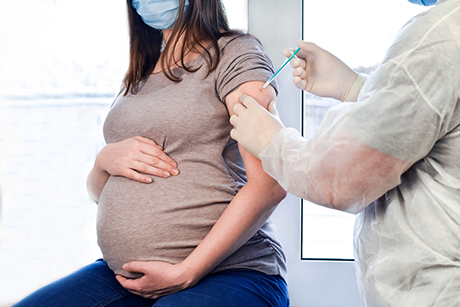
Getting ready for baby: your prenatal care during the third trimester
Congratulations on reaching the third trimester of your pregnancy - week 28 to delivery. Like the other trimesters, you'll experience continued changes in your body as your baby grows. And routine prenatal care remains essential to keep you both safe and healthy.
During the third trimester, your visits to your OB GYN will likely increase. However, you may not need as many additional screenings or tests in this last trimester. During these last several weeks, you'll focus on getting ready to meet your new bundle of joy.
Third trimester prenatal appointments
During the third trimester, your prenatal visits with your OB GYN increase to every two weeks. Then, around week 36, you'll visit your OB GYN every week. These visits might include many of the same checks as your other visits, such as a urine test, blood pressure, and weight measurements.
As you get farther along, your OB GYN may also talk to you about:
- Counting fetal movements
- The position of your baby, including options if your baby doesn't move to a head-down position
- Whether or not your cervix is effaced or dilated
- Signs of labor and when to go to the hospital
Of course, your care depends on your specific health and any medical conditions you have. If you have a high-risk pregnancy, your OB GYN or maternal-fetal medicine specialist will monitor you closely and help you make decisions on the best way to provide a safe delivery.
Group B strep testing
In addition to routine checks at your prenatal visits, a group B strep test is recommended for all pregnant women at 36 to 37 weeks. Group B strep is a common type of bacteria. Many women carry group B strep, but they don't know it because it typically doesn't cause any symptoms.
If your group B strep test is positive, it usually isn't a reason to worry. Your OB GYN will have you take antibiotics during labor to decrease the risk of passing group B strep to your baby. According to the CDC, a baby's risk of developing group B strep disease is 20 times greater in moms who do not receive antibiotics during labor.
Tdap vaccine
The Tdap vaccine helps prevent multiple illnesses, including pertussis or whooping cough. While whooping cough is less dangerous for an adult, it can be life-threatening in newborns, who are too young to get the vaccine. When given during the third trimester, the Tdap vaccine can help you produce antibodies against pertussis and protect your baby after birth.
The American Academy of Family Physicians says the ideal time for a pregnant woman to get the vaccine is between 27 and 36 weeks. However, it's safe for pregnant women throughout their pregnancies.
Preparing for delivery
Your third trimester visits are a great time to ask questions about your upcoming delivery. Many moms also find it helpful to take a childbirth class during the third trimester. Some items you may want to discuss with your OB GYN include:
- Pain management options during delivery
- Reasons you may need a cesarean birth
- Cord blood banking options
- What happens if you go into labor early
- What happens if you get past your due date
- Coverage if your OB GYN is unavailable when you go into labor
- Any past complications you've had during birth
When to go to the hospital
Finally, as you approach your due date, make sure you know when to call your doctor or go to the hospital. Your OB GYN can provide specific instructions on what to do if you think you are in labor. In general, you may be in labor if you're having contractions five minutes apart that last a minute each for at least an hour.
The American College of Obstetricians and Gynecologists says you should also go to the hospital if you have other warning signs, such as:
- You notice fewer fetal movements and aren't feeling your baby move
- You're having constant, intense pain with no breaks in between
- Your water breaks - with or without contractions
- You have heavy vaginal bleeding
Many first-time moms worry if they'll know they are in real labor. When in doubt, call your OB GYN. He or she can talk through your symptoms and let you know if you need to get checked.
